
Shared Content Block:
Surgery Styles -- directory
Shared Content Block:
Cancer Center Styles -- Borderless table for directories
PIKE-PREP: Preparation in Interdisciplinary Knowledge to Excel - Postbaccalaureate Research Education Program
Mission
The mission of the University of Colorado (CU) Anschutz PIKE-PREP program is to offer a year-long multi-dimensional mentoring and research training experience to prepare post-baccalaureate students who have experienced a lack of access in education and training activities to enroll and succeed in a top-tier, research-focused doctoral program and commit to a career in biomedical research.
To achieve this mission, PIKE-PREP program students will:
- Conduct research with mentor support to strengthen their research and technical skills.
- Improve their competitiveness for PhD program admission through guidance and training on the graduate school application process.
- Participate in high-quality professional and career development activities individually designed to complement each PREP scholar’s needs and goals.
- Engage in continuous and dynamic mentoring and community-building research centered experiences designed to enhance the scholar’s network and integration in the social, research, and academic environments.
One important goal of PIKE-PREP is to address the challenges that impact scholars who have experienced a lack of access in education and training activities and to support them in their pursuit of earning a PhD in a biomedical research program.
PIKE-PREP is supported by an NIH PREP R25 grant through the National Institute of General Medical Sciences and administered by the Cancer Research Training and Education Coordination (CRTEC) at the CU Anschutz Cancer Center. The program also receives support from the CU Anschutz Chancellor's Office, CU School of Medicine, CU Anschutz Cancer Center, Department of Surgery, and Division of Medical Oncology.
Application Dates
- November 3, 2025 – March 2, 2026: Program Application Open
- March 2, 2026: All applications due (11:59 pm MT)
- June 1, 2026: Program start date
Apply Now
If you would like to learn more about this program from our most recent Informational Session from January 6th, 2026, click the link below.
PIKE-PREP Informational Session
Shared Content Block:
Cancer Center Styles -- Give headings inside accordions and tabs more top margin
PIKE-PREP is a one-year program designed to prepare students for admission to and success in a top tier biomedical graduate school.
In this mentored research and training program, resilient students interested in pursuing a PhD or MD-PhD degree in biomedical sciences will participate in PIKE-PREP experiences and activities throughout the year at the University of Colorado Anschutz.
Who is this program for?
This program aims to reach students who have experienced a lack of access in education and training activities that are pursuing a PhD or MD-PhD in a biomedical or behavioral sciences field.
If you are specifically interested in cancer-related research and would benefit from a two-year program, our ASCENT post-baccalaureate program offers this experience. Please note that we are not accepting applications for the 2025-26 cycle.
Neither PIKE-PREP nor ASCENT are for students interested in applying to MD programs without a PhD focus or for students who are only exploring the idea of a future career in scientific research. If you are interested in pursuing an MD degree, please apply to the B2MR program instead which is a post-baccalaureate program for future medical students who are interested in incorporating research into their medical career.
PIKE-PREP is a one-year program beginning in June and ending the following June.
Timeline:
Summer
- Introductory program activities including a meet and greet with the staff and mentors and a tour of the CU Anschutz graduate program laboratories and facilities.
- Lab safety training.
- Development of the Individualized Development Plan (IDP).
- Partnering with mentors and research laboratories within CU Anschutz.
- Other PIKE-PREP activities and trainings.
- Optional GRE preparation workshop.
Fall/Winter
- Continue research work with mentors.
- Participate in journal club meetings, research-specific seminars, workshops, and/or retreats, skill development workshops, and other PIKE-PREP activities.
- Take a biostatistics course.
- Take optional graduate and/or undergraduate courses needed to enhance the scholar’s graduate application.
- Prepare graduate program applications with support and guidance from the PIKE-PREP team and mentors.
- Attend the CU Anschutz graduate program recruitment weekend.
Spring
- Wrap up research projects.
- Attend or present at a national science conference.
- Take optional graduate and/or undergraduate courses needed to enhance the scholar’s graduate application.
- Complete work towards meeting IDP goals.
- Support PIKE-PREP with the recruitment of the next class of scholars.
- Attend the end-of-year celebration.
- A salary of approximately $35,000, plus an additional $5,000 to pay for health, dental, and vision benefits,
- Tuition remission for PhD courses deemed necessary to enhance the scholar’s preparedness for graduate school,
- Travel expenses to attend or present at a scientific conference,
- Exceptional mentored research experience at CU Anschutz,
- Support in developing and preparing a competitive doctorate program application to a top-tier institution in biomedical and translational research,
- High-quality professional and career development activities designed to meet each PIKE-PREP scholar’s needs and goals,
- And networking and community building opportunities to enable the scholar to integrate into the social and research environment.
As a comprehensive biomedical research university with numerous T32 and R25 training and education grants, students will have a diverse array of biomedical research subject areas to choose from including:
- Cancer Biology
- Cell Biology, Stem Cells, and Development
- Computational Bioscience
- Community & Behavioral Health
- Environmental & Occupational Health
- Epidemiology
- Human Medical Genetics and Genomics
- Immunology
- Integrated Physiology
- Microbiology
- Molecular Biology
- Neuroscience
- Pharmaceutical Outcomes Research
- Pharmaceutical Sciences
- Pharmacology
- Public Health
- Rehabilitation Science
- Structural Biology and Biochemistry
- Toxicology
| Name | Department/ School | Research Interests |
| Rajesh Agarwal, PhD | Department of Pharmaceutical Sciences – Skaggs School of Pharmacy and Pharmaceutical Sciences | Cancer Biology, Cancer Pharmacology, Warfare Vesicants |
| Thomas Anchordoquy, PhD | Department of Pharmaceutical Sciences – Skaggs School of Pharmacy and Pharmaceutical Sciences | Mechanisms to exploit exosomes for drug delivery, and strategies that harness the nanoparticle-induced immune response to limit off-target accumulation of nanomedicines and promote tumor regression. |
| Bruce Appel, PhD | Department of Pediatrics, Division of Developmental Biology – School of Medicine | The genetic, molecular and cellular basis of brain development and myelination using zebrafish as a model system. |
| Tracy L. Bale, PhD | Department of Psychiatry – School of Medicine | Understanding the role of stress dysregulation in neurodevelopmental and neuropsychiatric diseases, and the sex differences that underlie disease vulnerability in humans using the mouse as a preclinical model. |
| Leslie Berg, PhD | Department of Immunology & Microbiology - School of Medicine | Understanding the roles of T-cell antigen receptor signaling in protection against infectious diseases, in tissues damage caused during autoimmunity, and in eradication of tumors. |
| Evelinn Borrayo, PhD | Department of Community & Behavioral Health - Colorado School of Public Health | Health Disparities, Cancer Among Ethnic Minorities, Women, and Older Adults, Latina and Latino Cancer |
| Cathy Bradley, PhD, MPA | Cancer Center & Colorado School of Public Health | Health and Labor Market Outcomes, Productivity Costs of Disease, Health Insurance Influence of Employment-Contingent Health Insurance on Treatment and Labor Supply, Socioeconomic Healthcare Disparities, Healthcare Delivery, Medicaid |
| Kimberly Bruce, PhD | Department of Medicine, Division of Endocrinology/Metabolism/Diabetes – School of Medicine | Understanding how changes in brain metabolism drive neurodegenerative diseases like Alzheimer’s disease and multiple sclerosis, and designing new strategies that restore metabolism to mitigate disease. |
| Carlos Catalano, PharmD, PhD | Department of Pharmaceutical Sciences – Skaggs School of Pharmacy and Pharmaceutical Sciences | Seeking to understand the molecular mechanisms of virus development in the complex double-stranded DNA (dsDNA) viruses. |
| Sarah Clark, PhD | Department of Otolaryngology – Head & Neck Surgery | Bacterial-driven immune modulation in the respiratory tract exploring how exposure to these bacteria influences upper and lower respiratory tract inflammation and disease, with a focus on the innate immune response to acute infection. |
| Katrina Claw, PhD | Division of Biomedical Informatics and Personalized Medicine – School of Medicine | Using genetic information and biomarkers for personalized medicine, and understanding ethical cultural and social implication of genomics research with populations historically underrepresented in health research. |
| Joanne Cole, PhD | Department of Biomedical Informatics – School of Medicine | Use of large-scale genomics as a tool to learn more about diet’s role in the body and human health, with a focus on cardiometabolic disease. |
| Sean Colgan, PhD | Division of Gastroenterology and Hepatology – School of Medicine | Mucosal inflammation in the context of inflammatory bowel disease and other GI diseases (microbiota, host immune system, genetic background, and environmental influences). |
| Eduardo Davila, PhD | Division of Medical Oncology – School of Medicine | Understanding the cellular and molecular signals that promote generation of potent and long-lasting tumor-specific T cell responses. |
| James DeGregori, PhD | Department of Biochemistry and Molecular Genetics - School of Medicine | Understanding how carcinogenic conditions promote cancer evolution and discovering pathway dependencies in cancers that can be exploited therapeutically. |
| Kelly Doran, PhD | Department of Immunology and Microbiology – School of Medicine | The study of host - pathogen interactions in the central nervous system and the female reproductive tract with a focus on major human pathogens including Streptococcus, Staphylococcus (MRSA), and Bacillus anthracis in order to develop new therapeutic approaches to prevent GBS maternal colonization and neonatal disease. |
| Breck Duerkop, PhD | Department of Immunology and Microbiology – School of Medicine | Mobile elements in bacteria including bacteriophages, plasmids, and insertion sequences to understand how these elements interact with their bacterial hosts and impact human health. |
| Julia Dunn, PhD | Department of Pediatrics – Gastroenterology, Hepatology, and Nutrition – School of Medicine | Explores innate immunity with the goal of revolutionizing treatment of allergic diseases. |
| Gidon Felsen, PhD | Department of Physiology and Biophysics – School of Medicine | How the nervous system makes and acts upon decisions using electrophysiological, behavioral, pharmacological, molecular, and computational methods to study how sensory representations are transformed into plans for motor output. |
| Heide Ford, PhD | Department of Pharmacology – School of Medicine | Understanding the parallels between normal development and tumorigenesis/tumor progression by looking at developmental transcription factors and the immune microenvironment using mouse and zebrafish models. |
| Rachel Friedman, PhD | Department of Immunology and Microbiology – School of Medicine | Understanding how T cell interactions with antigen presenting cells at the disease site and how this can result in either T cell activation or tolerance with the objective of developing therapeutic interventions to disrupt pathogenic cellular interactions that promote autoimmunity. |
| Emily Gibson, PhD | CU Denver Engineering Department of Bioengineering | Develop novel optical devices using multiphoton, superresolution and structured illumination microscopy applied to living systems with the goal of aiding basic neuroscience research and development of clinical tools. |
| Michael Harris - Love, PT, MPT, DSc, FGSA | Physical Therapy - School of Medicine | Geriatric Physical Therapy, Muscle Disease, Autoimmune Disorders |
| Audrey Hendricks, PhD | Department of Biomedical Informatics – School of Medicine | Use biomedical research and statistical and machine learning method to develop and apply methods to improve the utility and equity of large, publicly available genetic resources, identify the biological mechanisms of healthy diets, and elucidate the genomic underpinnings of conditions and traits. |
| Blake Hill, PhD | Department of Pharmaceutical Sciences – Skaggs School of Pharmacy and Pharmaceutical Sciences | The fundamental events that regulate mitochondrial homeostasis in disease with the goal of determining how proteins interact with other biological macromolecules to control these basic processes in healthy cells and go awry to cause disease. |
| Department of Surgery, Divisions of Plastic & Reconstructive Surgery and Transplant Surgery - School of Medicine | Transplantation immunology with a focus on developing clinically relevant protocols for the establishment of transplantation tolerance | |
| Ethan Hughes, PhD | Department of Cell & Developmental Biology - School of Medicine | Understand how neuron-glial interactions modulate brain function and contribute to pathology in neurodegenerative disease by studying oligodendrocyte lineage cells with neurons in the adult cerebral cortex. |
| Aaron Johnson, PhD | Department of Biochemistry and Molecular Genetics - School of Medicine | The formation and regulation of chromatin domains and their roles in epigenetic genome regulation. |
| Craig Jordan, PhD | Division of Hematology – School of Medicine | Acute Myeloid Leukemia and Leukemia Stem Cells. |
| Ross Kedl, PhD | Department of Immunology & Microbiology - School of Medicine | Understand the boundary between the innate and adaptive immune systems and seek to identify practical methods of intervention for the purposes of vaccine discovery, development and design. |
| Elizabeth Kovacs, PhD | Department of Surgery, Division of GI, Trauma, and Endocrine Surgery – School of Medicine | The effects of advanced age and alcohol misuse on inflammatory responses after burn trauma or infection. |
Diverse team of researchers working in the areas of computational biology and biomedical data science. We are passionate about using machine learning to turn massive collections of public data into biomedical insights about the genes and molecular mechanisms underlying complex diseases. | ||
| Daniel LaBarbera, PhD | Department of Pharmaceutical Sciences – Skaggs School of Pharmacy and Pharmaceutical Sciences | Multidisciplinary cancer drug discovery and development, including high-throughput and high-content screening (HTS/HCS); drug design and medicinal chemistry; cancer biology and lead drug mechanism of action determination, and in vitro and in vivo pharmacology. |
| Carlo Marchetti, PhD | Department of Medicine, Division of Infectious Disease – School of Medicine | The role of inflammatory cytokines as mediators of disease - specifically identification of nucleotide-binding oligomerization domain-like receptors and their role in infections and diseases such as pancreatic cancer and melanoma. |
| Manisha Patel, PhD | Department of Pharmaceutical Sciences – Skaggs School of Pharmacy and Pharmaceutical Sciences | Understand the role of redox processes and metabolic mechanisms in epilepsy, aging and toxicant-induced brain injury using biochemical, metabolic, transgenic, and translational approaches. |
| Karin Payne, PhD | Department of Orthopedics – School of Medicine | The development of functional regenerative medicine approaches for bone and cartilage tissues, with a particular interest in treating growth plate cartilage injuries affecting the pediatric population. |
| Roberta Pelanda, PhD | Department of Immunology & Microbiology - School of Medicine | Uncovering the molecular pathways that guide the development, selection and activation of autoreactive and non-autoreactive B cells and that, thus, lead to the generation of the naïve B cell repertoire. |
| Vanessa Phelan, PhD | Department of Pharmaceutical Sciences – Skaggs School of Pharmacy and Pharmaceutical Sciences | Seeking to understand how bacteria and fungi in the human body cooperate to influence antimicrobial resistance, drug efficacy and toxicity, and human health |
| Nidia Quillinan, PhD | Department of Anesthesiology – School of Medicine | The excitability and plasticity changes in the brain following cerebral ischemia. Of particular interest is in the cerebellar networks that are affected by stroke and cardiac arrest and the role of sex hormones and their receptors in acute neuronal injury and long-term hippocampal function. |
| Tania Reis, PhD | Division of Endocrinology, Metabolism, and Diabetes – School of Medicine | Understanding the genetic basis of obesity and neuronal control of energy balance using Drosophila as a model system. |
| Diego Restrepo, PhD | Department of Cell and Developmental Biology | Understand how brain circuits mediate decision making using high density electrical recording, advanced microscopy, closed loop optogenetics and computational neuroscience. |
| Joseph Sakai, MD | Department of Psychiatry, Substance Dependence – School of Medicine | Drug abuse, conduct disorder, & substance use disorder |
| Mario Santiago, PhD | Division of Infectious Diseases – School of Medicine | The interplay between the innate and adaptive immune response against retroviruses to conceptually advance vaccine and cure strategies against HIV/AIDS. |
| Joseph Schacht, PhD | Department of Psychiatry, Substance Dependence – School of Medicine | Neurobiological measures to improve treatment for alcohol and addictive disorders. |
| David Schwartz, MD | Division of Pulmonary Sciences & Critical Care – School of Medicine | Genetics and genomics of pulmonary fibrosis, gene discovery in innate immunity and epigenetics of environmental lung disease. |
| Tamim Shaikh, PhD | Department of Pediatrics Clinical Genetics and Metabolism - School of Medicine | Copy number variation in human disease, genome instability and mechanisms of rearrangement, and discovery and functional characterization of candidate disease genes |
| Matthew Sikora, PhD | Department of Pathology - School of Medicine | To understand mechanisms of response and resistance to steroid hormones and anti-estrogen therapies in breast cancer. |
| Jamie Studts, PhD | Division of Medical Oncology - School of Medicine | Population Health Science for Lung Cancer Prevention and Control |
| Richard Tobin, PhD | Department of Surgery, Division of Surgical Oncology – School of Medicine | The interactions of innate or innate like immune cells with adaptive immune cells to generate effective immune responses. |
| Department of Immunology & Microbiology-School of Medicine | Identifying novel tumor-derived suppressive mechanisms for potential therapeutic use. |
| Linda van Dyk, PhD | Department of Immunology and Microbiology – School of Medicine | The interactions between virus and host in health and disease - specifically with gammaherpesviruses. |
| Breelyn Wilky, MD | Department of Medicine, Division of Medical Oncology – School of Medicine | Translational research related to sarcoma and early immunotherapy protocols: Understanding how patient sarcomas respond to immune therapy and testing new immune-related treatments in mouse models of sarcomas. |
| Department of Surgery, Division of Surgical Oncology - School of Medicine | Discovery of novel immunosuppressive pathways and their applications in cancer therapy |
Mentor Responsibilities
Research Experience
- Collaborate with the scholar to design and conduct a research project.
- Provide research-related guidance and support.
- Help the scholar prepare a review article for publication.
IDP Development and Review
- Support the scholar and team in developing the IDP.
- Participate in tri-monthly IDP review meetings to monitor the scholar’s progress towards their goals.
Meetings and Activities
- Meet regularly (weekly) with the scholar.
- Attend and support PREP-related activities, which may include teaching on a topic in which you are an expert.
Training
- Attend “Mentor Training”, “Unconscious Bias”, and “Harassment Training."
Program Reviews and Evaluation
- Complete quarterly mentor surveys and progress reports on the scholar’s progress in the program.
- Review Ph.D. and MD-Ph.D. school applications.
- Attend and provide feedback on the scholar’s research presentation.
Celebrate
- Attend the end-of-year celebration.
- Enjoy your mentorship experience!
University of Colorado Anschutz
The University of Colorado Anschutz is the largest academic medical center in the Rocky Mountain region. As one of the only integrated health science campuses in the country, our campus brings together research facilities, hospitals, biotech/industry organizations, and clinics to transform healthcare.
There are five health professional schools at the CU Anschutz campus:
- The School of Medicine
- The Skaggs School of Pharmacy and Pharmaceutical Sciences
- The Colorado School of Public Health
- The College of Nursing
- The School of Dental Medicine
School of Medicine
Biomedical Science Graduate Programs
The Biomedical Science PhD Programs specialize in conducting basic and translational research that can bridge the research and clinical worlds. Through this graduate program, students can study cancer biology, cell biology, stem cells, and development, computational bioscience, human medical genetics and genomics, immunology, integrated physiology, microbiology, molecular biology, neuroscience, rehabilitation science, or structural biology and biochemistry.
Medical Scientist Training Program
The Medical Scientist Training Program provides rigorous training for students interested in a career in clinical medicine and basic science research. In this program, students will gain training to excel as clinician-scientists.
Skaggs School of Pharmacy and Pharmaceutical Sciences PhD Programs
At the Skaggs School of Pharmacy and Pharmaceutical Sciences PhD Programs breakthrough research and groundbreaking discoveries happen every day. The PhD programs include specializations in pharmaceutical sciences, clinical translational science, pharmaceutical outcomes research, and molecular toxicology.
Colorado School of Public Health
The Colorado School of Public Health takes a trailblazing approach to the science and art of public health by applying a blend of research and practice to the real world to improve health. In this program, students can earn a PhD or a Doctor of Public Health in Community & Behavioral Health, Environmental & Occupational Health, or Epidemiology.
Nursing Graduate Program
The PhD in Nursing Program is designed to prepare nurse scholars to advance the art, science, and practice of nursing. In this program, students will focus on health care systems, caring science, or bio-behavioral science-based research.
Dental Medicine Research
Although the School of Dental Medicine does not offer a PhD in Craniofacial Biology, graduate students have the opportunity to conduct oral health research by enrolling in the graduate training programs with the biomedical science graduate program and electing to work with the School of Dental Medicine research faculty who are members of these training programs.
Eligibility
PIKE-PREP is intended for recent (within 36 months or less of the program start date) baccalaureate graduates who have a committed desire to pursue a PhD or MD-PhD in biomedical research and need one year of training to be ready to enroll in graduate school.
Consideration for rolling admission and early review closes two weeks before the application deadline. If you do not receive a notification that your application has been selected for early review, it will automatically be considered in the general review process in early March, with decisions communicated in late March or early April.
If you are interested in pursuing a career in a cancer-related research area AND need two years of additional training and career development to be prepared for admission to graduate school, consider applying to the ASCENT post-baccalaureate program instead.
PIKE-PREP is not intended for students who have not committed to a future career in research or for students pursuing an MD program. If you are interested in pursuing an MD degree and are also interested in conducting research, please apply to the B2MR program instead which is a 2-year post-baccalaureate program for future MD and MD-PhD students.
To be eligible to apply, applicants must:
- Be U.S. citizens or permanent residents.
- Have earned a baccalaureate degree in a biomedical field within the last 36 months of the program start date from an accredited college or university.
- Be committed to pursuing a PhD or MD-PhD program in biomedical research following participation in the PIKE-PREP program.
- Not be enrolled in any graduate program during the PIKE-PREP program period.
Applicants who meet the following criteria are strongly encouraged to apply:
- Demonstrate a strong academic background in the biological, chemical, and physical sciences in addition to mathematics, as demonstrated through undergraduate coursework.
- Individuals from groups who historically have lacked access to the biomedical sciences.
Note: While there is no minimum GPA requirement for admission to this program, the applicant’s cumulative and science GPA as well as the number and type of science-related courses completed will serve as an indicator of readiness for graduate-level work and prior research experience will be viewed favorably.
We encourage all interested applicants to apply. If you have questions about your eligibility, please reach out to us to discuss this further ([email protected]).
Candidate Selection/Review Process
Only complete applications will be reviewed. An application is considered complete once it has been submitted and both primary letters of recommendation have been received. Applicants are encouraged to apply early, as applications are reviewed on a rolling basis prior to the final review period, provided all required materials are submitted. Consideration for rolling admission and early review closes two weeks before the application deadline.
The selection committee evaluates eligibility criteria, coursework, academic performance, research experience, application responses, personal statement, research statement, and letters of recommendation. The committee seeks scholars who demonstrate a strong commitment to science and scientific research and who plan to enroll in a PhD or MD-PhD program immediately following PIKE PREP. Reviewers also consider an applicant’s motivation for applying to PIKE PREP, the skills and experiences they seek to develop, and how participation in the program will support their future graduate training.
Applicants who are selected through the rolling review process may receive early admission notifications. Rolling admission and early review close two weeks before the application deadline. If you do not receive a notification that your application has been selected for early review, it will automatically be considered in the general review process. All remaining complete applications will be included in the final review, which occurs after the application deadline. Final decisions will be communicated in late March or early April.
Application Reviews
We will review applications that are completed on a rolling basis (must have both primary letters of recommendation submitted to be reviewed).
You will be notified if you receive early admission into the program. All other applications will be rolled into the final review occurring after the March 2, 2026 due date.
How do I apply to PIKE-PREP?
Application dates and deadlines are listed at the top of the page.
There are three post-baccalaureate programs at CU Anschutz. How do I know which one to apply to? Should I apply to all three?
No, you should not apply to all three programs. Each of these post-baccalaureate training programs is different from the other two, and you should read about each program in depth before deciding which program to apply to. Identify the program that best suits your interests and needs and apply to that one specifically. Some guidelines to help you make your decision between the three programs:
- PIKE-PREP: If you are interested in attending a PhD or MD-PhD program in any biomedical-related science field and only need one year of additional training to be prepared for enrollment in graduate school, apply to this program.
- ASCENT: If you are specifically interested in pursuing a PhD or MD-PhD in a cancer-related research area, AND you need two years of additional training to be prepared for enrollment in graduate school, apply to this program.
- B2MR: If you are interested in becoming a clinician scientist (MD-PhD or MD who does research) AND you need two years of additional training to be prepared for enrollment to medical school or MSTP/MD-PhD programs, apply to this program.
Note: If you are a student who is interested in becoming an MD but not interested in research, you are not a fit for any of the post-baccalaureate programs we offer.
Once I start the application, can I save my progress and resume at a later time?
Yes, you will be able to start the application and return to it to complete it at a later time. You will be prompted to write down the code that is given to you at this time and enter your email to receive the link to return to your incomplete application. As you will only be allowed to create one application, it is important you save both of these or you will not be able to return to your application to complete it. Your application won’t be submitted to the PIKE-PREP team until you click finish and submit.
Will my application be considered if my references have not submitted their letter of recommendation by the due date?
Your application will be reviewed (following the application deadline) as long as at least two of your letters of recommendation have been turned in even if both of those letters are not your primary two letters. Note that missing one or both of your primary letters could affect the committee’s consideration of you as a candidate.
How soon after the application deadline will I be notified if I am accepted into the program?
All applicants will be notified of the results between April 15th and May 1st.
Who should I get to write my letters of recommendation for the program?
Your letters of recommendation should be written by people who are able to attest to your personal, academic, and research skills and interests. A letter of recommendation from a research mentor is ideal if you have had research experience. Faculty members who have worked with you in laboratory-based courses and who know you and your research interests would be other good sources for letters of recommendation. All letters of recommendation should address your commitment to pursuing a PhD or MD-PhD degree and your future career plans and goals.
What should I do if my recommenders did not get the recommendation request emailed to them?
First, double check that you entered their email into the application correctly. Next, ask your recommenders to search their inbox, spam, and trash for PIKE-PREP. Our recommendation requests can easily end up in spam or be accidentally deleted. If they still do not have the recommendation request, reach out to us at [email protected] and we can regenerate the email request to your recommender.
I see there is a list of mentors on the PIKE-PREP website that I might have the opportunity to work with during my time as a PIKE-PREP scholar. Do I need to select my desired mentor before applying to the program?
Potential mentors are listed on the website for your information. In the application you will have the opportunity to note any potential mentors you are interested in working with, however, ultimately mentor placement will be done by the PIKE-PREP leadership team. We will strive to place you with the best mentor based on your research interests. Scholars should not contact mentors and try to arrange their own lab placement. That is the job of the PIKE-PREP leadership team.
What if I am interested in working with a specific faculty member that is not listed as a current PIKE-PREP mentor?
If you have a specific faculty member in mind that you would like to work with as a PIKE-PREP scholar that is not listed as a vetted and trained mentor with the program, we are happy to reach out to them to see if they are interested in serving as a PIKE-PREP mentor and working with you as a scholar. You will have the option to provide us with their name in the PIKE-PREP application.
Does my baccalaureate degree have to be from a biomedical field if I have taken numerous and well rounded science courses?
Yes, your baccalaureate degree must be from a biomedical field. Having a degree in a biomedical field from an accredited institution allows you to demonstrate that you have the foundational knowledge and skills needed to pursue admissions to a top-tier biomedical graduate school. Students applying to PIKE-PREP should have completed rigorous coursework in the biological, chemical, and physical sciences in addition to mathematics. If you have specific questions about your eligibility based on your degree or coursework, please email [email protected].
I completed my baccalaureate degree more than three years ago but have been taking courses since this time. Do I still qualify to apply?
In order to be eligible to participate in PIKE-PREP, you must have completed your baccalaureate degree within 36 months or less of the program start date.
Parental, medical, or other well-justified leave for personal or family situations is not included in the 3-year eligibility limit, nor is national service (e.g., Peace Corps, or service in the National Guard or Armed Forces Reserves).
I received my first baccalaureate degree more than three years ago but I returned to school and received a second baccalaureate degree within the last three years. Am I eligible to apply to PIKE-PREP?
Yes, as long as the last baccalaureate degree you earned was no more than 36 months from the start date of PIKE-PREP, and it was in a biomedical field you are eligible to apply.
I have already earned or am completing my Master’s degree. Am I still eligible for the program?
Yes, you are still eligible to apply to PIKE-PREP even if you have earned a Master’s degree. The eligibility requirement is that you may not be enrolled in a degree-seeking program at the same time as you are participating in PIKE-PREP AND that you earned your baccalaureate degree within 36 months of the start of PIKE-PREP.
I am an international student. Am I eligible for the program?
Unfortunately, we are currently unable to take international scholars. If, however, you already hold a VISA from the University of Colorado, Denver, and you graduated with a bachelor’s degree from a US-accredited college or university with the past 36 months, then you would be eligible to apply.
While my coursework demonstrates a strong scientific background in biological, chemical, and physical science as well as mathematics, I struggled in one or two of these courses. Should I still apply for the program?
Yes, you should still apply. The goal of PIKE-PREP is to support our scholars in addressing areas they may have deficiencies in that would impact their ability to be accepted into competitive graduate programs. You will have the opportunity to retake undergraduate courses or take graduate-level courses with support from the PIKE-PREP mentors and team during your time in the program.
I am uncertain if I would like to do research and pursue a PhD or MD-PhD degree in the future. Is PIKE-PREP a good program to enable me to explore research as a future career?
No, PIKE-PREP is not an exploration program. PIKE-PREP is for scholars who have already decided to pursue a future career in research and who need more support, development, and training in order to have a competitive application to graduate school.
I do not have prior research experience. Should I still apply?
What are you looking for in a competitive application?
The selection committee will consider your eligibility criteria, coursework, grades, research experiences, answers on the application, statement of purpose/intent, and letters of recommendation. We are looking to bring in scholars that have demonstrated a clear passion for science and scientific research and who intend to enroll in a PhD or MD-PhD program immediately following PIKE-PREP. We also want to understand why you are interested in PIKE-PREP and what you need to develop a competitive graduate program application as well as how the program will benefit you moving forward into a PhD or MD-PhD program.
Can I visit the campus and labs before making a decision to either apply for or accept an invitation to join the program cohort?
At this time we are unable to accommodate lab and site visits, however, applicants are encouraged to review the information on the PIKE-PREP website, reach out to the PIKE-PREP program team with any questions at [email protected], visit the University of Colorado Anschutz website, and the Biomedical Science Graduate Program website.
What if I am not eligible to apply to PIKE-PREP? What other recommendations do you have to help me prepare for a PhD program?
There are other preparatory programs at universities across the country. You could research to find other programs that might be a better fit for you. Alternatively, interested students could consider obtaining a job in a research laboratory such as a research assistant, research coordinator, or laboratory technician. These positions may also offer tuition remission or reimbursement for employees to take graduate courses while working. These experiences could also help you prepare for graduate school and enable you to further develop the skills and experience you need to be accepted to a graduate program. To find listings for positions at CU go to the CU Careers Website.
Do you have other questions? Reach out to the PIKE-PREP team at [email protected]
Before beginning your application, please have the following information ready and completed:
- Copy of your Resume or CV.
- Copies of the official or unofficial transcripts from all universities/colleges attended. The graduation date must be included.
- Names and contact information for a minimum of two and a maximum of four faculty members who have agreed to write and submit a professional reference on your behalf by the application deadline.
- Note: Your letters of recommendation should be professional references from your college/university faculty members who know you personally and who can attest to your future career plans and goals. Examples include science
course professors and instructors, professional counselors, and major advisors.
- Note: Your letters of recommendation should be professional references from your college/university faculty members who know you personally and who can attest to your future career plans and goals. Examples include science
course professors and instructors, professional counselors, and major advisors.
- You will be asked on the application to identify your top three research areas you are interested in for your PIKE-PREP research experience. Please review the information in the “Research Areas and Program Mentors” tab on the PIKE-PREP
website and have your top three identified for both before beginning your application.
- Write a one-page personal statement (single-spaced, with 0.5-inch margins, in 11-12 pt. font). Use your personal statement to help the PIKE-PREP admissions committee to get to know you, understand your reasons for wanting to attend PIKE-PREP at the University of Colorado Anschutz, and learn about your professional goals. Please be sure to describe:
- Why you have chosen to apply to PIKE-PREP,
- What you hope to gain from participation in the program on a personal and professional level,
- Any life experiences, including personal challenges, which have impacted you and your decision to pursue a career in biomedical research, and
- Yourself, your sense of identity, and how this will contribute to enriching the environment of CU Anschutz and ultimately the field of biomedical research.
6. Write a one-page research statement (single-spaced, with 0.5-inch margins, in 11-12 pt. font). Use your research statement to summarize your past research experiences and research-related classroom experiences if you have not had a formal research experience. In addition, please include a description of:
- Your interest in and passion for biomedical research,
- Specific research fields or topics of study you find most interesting and why,
- How you have contributed to or solved a challenging problem or research question (if applicable),
- What you have learned about yourself through your past research experiences or research related classroom experiences, and
- Your professional goals, how a PhD fits with these goals, and where you envision your career to be in 5 to 10 years.
Once you begin your application you will have the option to save your work, resume at a later time, and review your application before submitting it.
Application dates and deadlines are listed at the top of the page.
 Fahiima Abdullahi
Fahiima Abdullahi
Hi! My name is Fahiima Abdullahi, and I was born and raised in Colorado. I graduated with Honors from the University of Colorado Denver with a B.S in Biology and minors in Anthropology and Honors and Leadership. During my undergraduate career, I conducted research at CU Anschutz and Dartmouth College, which further developed my passion for research. As a PIKE-PREP scholar, I will be conducting my research in Dr. Mercedes Rincon’s lab, investigating how different cytokine treatments influence T Cell Motility. I aim to pursue an MD-PhD with a focus on oncology clinical research. I also enjoy reading, travelling, listening to music, and spending time with family.
 Astrid Ardón López
Astrid Ardón López
My name is Astrid Ardón-López. I was born and raised in Honduras and moved to the United States in 2018. I began my academic journey at Cypress College, where I earned an Associate in Arts degree with an emphasis in Math and Science. I then transferred to California State Polytechnic University, Pomona (Cal Poly Pomona), where I graduated Summa Cum Laude with a B.S. in Chemistry, focusing on Biochemistry.
As an NSF-funded SPIRES scholar at Cal Poly Pomona, I researched how MiraLAX can be used as a precipitating agent to crystallize proteins for X-ray crystallography. I also participated in summer research programs at Cal Poly Pomona, the University of Arizona, and the University of California, Irvine, contributing to projects in Civil Engineering, Immunology, and Chemical Biology.
As a PIKE-PREP scholar at the University of Colorado Anschutz, I work in Dr. Christene Huang’s lab. My research focuses on how Galectin-3—a key protein involved in inflammation and fibrosis—affects the progression of Metabolic Dysfunction-Associated Steatotic Liver Disease (MASLD) in a sex-specific manner.
My goal is to become a physician-scientist, combining clinical care with research to better understand the molecular drivers of metabolic diseases and develop effective treatments.
 Taylor Geluck
Taylor Geluck
My name is Taylor Geluck, and I grew up in a small town in southern Illinois. I graduated from Washington University in St. Louis in May 2025 with Honors, earning a Bachelor’s degree in Biology with a Research Emphasis and a minor in Environmental Studies. I conducted undergraduate research in the Losos Lab in the Department of Behavioral and Evolutionary Ecology at WashU. My undergraduate work focused on investigating dietary differences between native and introduced Columbids in urban areas through stable isotope analysis. As a PIKE-PREP Scholar at the University of Colorado Anschutz, I work in the Davila Research Lab in the Department of Medical Oncology, analyzing tumor-specific immune cell responses in cancer and working to exploit the T cell’s ability to detect and destroy tumors. I am very passionate about the intersection of human, animal, and environmental health in the One Health framework, and I plan to pursue a DVM/PhD dual degree to achieve my dream of becoming a veterinary surgeon and scientist.
 Evie Nguyen
Evie Nguyen
Hi! My name is Evie Nguyen and I was born and raised in Arizona. In May 2024, I graduated Summa Cum Laude with Honors from Arizona State University, earning a B.S. in Biochemistry. During my undergrad, I was an Honor’s College Fellow and conducted research on health inequity in Vietnamese American population which led to my work in Mayo Clinic’s SURF program, where I focused on resolving disparities between MRI exams and biopsies for prostate cancer patients. At University of Colorado Anschutz, I work in Dr. Julia Dunn’s Immunology Lab, exploring eosinophil specialization in different environments, how specialized eosinophils interact with different cells, and the re-specialization of pro-inflammatory eosinophils in assisting tissue repair. I plan to pursue a PhD in Molecular and Cellular Biology. In my free time, I enjoy reading, watching tv/movies, baking, creating art, and spending time with my family.
 Erica Rodas Montejo
Erica Rodas Montejo
My name is Erica Rodas Montejo. I was born in Guatemala and raised in California. I graduated from California State University San Marcos (CSUSM) with a B.S. in Chemistry. As an Undergraduate Research Training Initiative for Student Enhancement (URISE) Scholar, I had the privilege of working on multiple projects, including computational chemistry, bioinformatics for biomedical applications, and the synthesis of a modified RGD-alginate hydrogel to create a 3D culture model. This model was used to differentiate stem cells into adipocytes to study their interactions with breast cancer cells. Currently, as a PIKE-PREP scholar, I have joined Dr. Blake Hill’s lab, which focuses on studying Drp1 and other proteins important for the regulation of mitochondrial fission. This research aims to improve our understanding of their roles in chronic diseases and to support the development of better therapeutics. Outside of the lab, I serve as a catechist and participate in the choir group at my parish. I also enjoy hiking in my free time. My future career goal is to pursue a Ph.D. in cancer research, establish my own lab, mentor future scientists, and teach at the university level.
2024-2025 Scholars
 Jenna Banh
Jenna Banh
My name is Jenna Banh, and I was born and raised in Colorado. I graduated Cum Laude with Honors from the University of Colorado - Denver with a B.S. in Psychology and a minor in Biology. During my undergraduate studies, I had the privilege of working in a lab focused on the mechanisms of Alzheimer’s disease and Down Syndrome in the Locus Coeruleus region. I was also a Gardner Scholar as well in UCD's Psychology department. Since joining the PIKE-PREP program, I have been working in Dr. Gidon Felsen’s lab, studying the circuitry involved in saccadic eye movements and the neurons responsible for this phenomenon, particularly in the superior colliculus and surrounding regions. My goal is to pursue a Ph.D. in neurodegenerative research, and I am excited about the opportunities the PIKE-PREP program offers to nurture this passion. Outside of the lab, I am a dancer, training in hip-hop, heels, and various other styles. I also enjoy spending time with my family and friends, traveling, and exploring new culinary experiences! I am currently enrolled in the Neuroscience PhD program at CU Anschutz.
 Brooke Linden
Brooke Linden
I was born and raised in Colorado Springs, CO, and Tucson, AZ, was home for four years. In May 2023, I graduated from the University of Arizona Summa Cum Laude with Honors, earning a B.S. in Molecular and Cellular Biology with a Biochemistry minor. I was a MARC scholar at the University of Arizona and conducted undergraduate research in the Capaldi Lab in the Department of Molecular and Cellular Biology. My undergraduate work focused on identifying novel cellular regulators implicated in TORC1 functioning. At the University of Colorado Anschutz, I work in the Davila Research Lab in the Department of Medical Oncology, investigating tumor-specific immune cell responses in cancer. I am pursuing an MD/PhD with a future goal of working in oncology clinical research as a physician-scientist. In my free time, I enjoy spending time with my family, friends, and pets! I am currently enrolled in the Cancer Biology MSTP program at CU Anschutz.
 Hajjia Mohammed-Gipson
Hajjia Mohammed-Gipson
I’m Hajjia Mohammed-Gipson, and I graduated from Xavier University of Louisiana in May 2023 with a Bachelor’s degree in Chemistry. I’ve lived a little bit of everywhere, but I mostly grew up in Memphis, TN. I am pursuing a PhD in pharmaceutical sciences in neuropharmacology because I love research and want to pursue a career developing drugs in the pharmaceutical industry. I have a passion to work, specifically, on psychiatric medications one day. I am currently enrolled in the Graduate Program in Biomedical Sciences umbrella program (GPiBS) at the University of Oklahoma Health Sciences Center.
 Amanda Morris
Amanda Morris
My name is Amanda (Manna) Morris, and I currently work in Bruce Appel’s lab studying the role of viral infection in the development and breakdown of myelin and synapses. I graduated from the University of Colorado Denver with a Bachelor’s of Science in Psychology as a Gardner Scholar, where my research was funded by the MARC U-STAR scholarship program. Previously, I have studied demyelination in the visual pathway induced by cuprizone. I plan on pursuing a PhD in neuroscience to investigate the mechanisms by which neurodegenerative diseases occur to hopefully lead to effective preventative therapies. I am a ping pong fanatic and I enjoy participating in and watching theatre.
 Skye Patterson
Skye Patterson
I grew up in West Texas and moved to San Antonio for my undergraduate studies where I graduated with honors from the University of Texas at San Antonio. I am passionate about research because I believe scientific progress is the key to creating a brighter future. I live with celiac disease, and many people I know struggle with other autoimmune related conditions. This has motivated me to investigate the mechanisms behind inflammation and disease. Ultimately, I hope to make a positive impact on the lives of those affected by these illnesses. I am currently pursuing this interest in Dr. Brek Duerkop's immunology & microbiology lab. I feel incredibly fortunate for the opportunity that PIKE-PREP has given me to pursue what I love. When I am not in the lab, I enjoy being outdoors, caring for my plants, listening to music, and creating art.
 Anne Williams
Anne Williams
Hi, my name is Anne Zinash Williams. I was born in Ethiopia but have lived the majority of my life here in Colorado. I attended Regis University where I received my B.S. in Neuroscience summa cum laude. My current research focus is studying the effect of tolcapone, brexpiprazole, and semaglutide medications on Alcohol Use Disorder (AUD). Additionally, I am researching the use of DBS or deep brain stimulation as a treatment for Methamphetamine Use Disorder. I hope to pursue a Ph.D. in clinical psychology. Outside of research, I love exploring Colorado, hiking, traveling, and going to get food!
2023-2024 Scholars
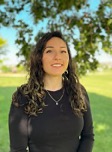 Kat Arce
Kat Arce
Hi! My name is Kaitlyn (Kat) Arce and I am a Chicana who was born and raised in El Paso, Texas alongside C.D Juarez, Mexico. I graduated from Texas A&M Corpus Christi with a Bachelor’s in Biomedical Science. The majority of my family members have auto-immune disorders that have minimal treatment options. This need for greater treatment diversity is what is inspiring me to pursue a PhD in Immunology. Additionally, Hispanic populations are underrepresented in research studies causing inequities within health care. Therefore, I am also driven to develop future research on disease presentations of auto-immune conditions specifically within Mexican and Latino populations. I am currently enrolled in the Immunology PhD program at CU Anschutz.
 Zoe Drigot
Zoe Drigot
As a PIKE-PREP scholar I worked in Dr. Sarah Clark’s lab studying the lung microbiome and how it impacts upper airway infections. I have conducted research in her lab since my junior year of college. In May 2023 I graduated summa cum laude from the University of Colorado - Boulder with a degree in Neuroscience. I am currently enrolled in the Medical Scientist Training Program (MSTP) at CU Anschutz. In the future, I hope to run my own lab and actively practice medicine. It is my ultimate goal for my research to be able to directly impact my patients.
 Daniela Gonzalez-Rivera
Daniela Gonzalez-Rivera
During my time in PIKE-PREP I worked in the Muscle Morphology, Mechanics, and Performance Laboratory at the University of Colorado Anschutz. My research focused on muscle health preventative screening for muscle mass deteriorating conditions. Previously, I was a Research Assistant through the MARC-U-Star Undergraduate Research Program at the University of Colorado, Denver, where I researched immunotherapies for highly metastatic melanoma skin cancer in the Department of Medical Oncology, Anschutz. I received my Bachelor of Liberal Arts and Science degree in Biology with a minor in Psychology at the University of Colorado, Denver in 2022. I am currently pursuing a Doctorate of Physical Therapy/PhD in Rehabilitative Sciences at CU Anschutz.
 Rebecca Han
Rebecca Han
Hi! My name is Rebecca Han in PIKE PREP I worked in Dr. Manisha Patel’s lab at the Skaggs School of Pharmacy where I studied the role of reactive species and metabolism on epilepsy. In May 2023, I graduated from the University of Colorado - Denver as a MARC-U-Star scholar studying the role of dopamine on learning and memory. I am currently pursuing a PhD in Neuroscience at the University of California at San Diego to investigate the mechanism of disease and therapies to improve the quality of life of patients. Outside of the lab, I love spending time with friends and family, exercising, and trying new foods!
 Megan Hupka
Megan Hupka
My name is Megan Hupka, and I was born and raised in Colorado. I graduated summa cum laude with my bachelor’s degree in Molecular, Cellular, and Developmental Biology with a minor in Computational Biology from the University of Colorado Boulder in May 2023. My passion lies in microbiology, specifically in pathogenesis and host-pathogen interactions. I believe I can change the world for the better through my passion, research, and mentorship of others with a career in academia. During my time at PIKE-PREP, I worked with Dr. Kelly Doran studying Enterococcus and Group B Streptococcus and the factors contributing to their colonization and pathogenesis in the female reproductive tract. I am currently enrolled in the Microbiology PhD program at CU Anschutz. Outside work, I love being around my dog, friends, and family and staying active with Irish Step Dancing.
 Jordan Swartz
Jordan Swartz
My name is Jordan Swartz and I come from a small farm town on Colorado’s Eastern Plains. Graduating from CU Denver with a bachelor’s degree in Integrative Biology led me to be intrigued by the molecular processes of chronic diseases and disorders, such as various forms of cancer. In PIKE PREP, I did research exploring molecular mechanisms of DNA damage repair in two different types of breast cancer: invasive lobular carcinoma (ILC) vs invasive ductal carcinoma (IDC). I am currently pursuing a PhD in Pharmacology at CU Anschutz. Outside of the lab, I enjoy spending time playing board games, reading, gardening, home renovations, baking, and enjoying the great outdoors and food scene Colorado has to offer.
2022-2023 Scholars
 Xander Bradeen
Xander Bradeen
I was born and raised in Colorado and graduated from the University of Colorado – Boulder Summa Cum Laude, with a degree in Neuroscience and a degree in Molecular Biology. I am pursuing an MD/PhD, with the eventual career goal of working in neuro-oncology.
UPDATE: Xander is currently pursuing an MD/PhD at the Medical College of Wisconsin.
 Kayla Medina
Kayla Medina
I am a first-generation Latina born and raised in Denver, CO. I received my BS in Integrative Biology and minors in Biophysics and Spanish at CU Denver. My younger sister's diagnosis with a rare genetic disorder called Prader-Willi Syndrome (PWS) inspired me to research rare genetic diseases to understand why and how this happens and ultimately find better treatments for these children.
UPDATE: Kayla is currently pursuing a PhD in the Human Medical Genetics and Genomics Program at CU Anschutz.
 Danae Mitchell
Danae Mitchell
My name is Danae Mitchell and I’m from Denver, CO and graduated with my BS in Biology from CU Denver. I’m interested in neuroscience, cell and molecular biology research and have worked with mouse models to research the functional outcomes to the brain after stroke.
UPDATE: Danae is currently pursuing a PhD in Neuroscience at CU Anschutz.
 Leah Nez
Leah Nez
(Photo by: Bryan Leavelle)
Ya’at’eeh! Shí éí Leah Nez yinishyé! Ashiihi nishli, tabaaha basheshchii, bitaani dashicheii, doo tachii'nii dashinali. Ákót’éego diné asdzáán nishłį́. Denver kééhasht’į́ ndi Tsé Bii' Ndzisgaii naashá Ahéhee’! Hello, my name is Leah Nez! I was born of the Salt Clan and born for the Water Edge People. My maternal grandfather is of the Under His Cover Clan and my paternal grandfather is of the Red Running into the Water People. In this way, I am a Navajo woman. I am currently living in Denver, but I’m from Monument Valley. Thank you! I graduated from MSU Denver in December 2021 with a B.S in Biology and B.A. in Philosophy. I have conducted research at the National Institutes of Health (NIH) in the Tribal Health Research Office (THRO) working with Dr. Sara Chandros Hull in Urban Indian research ethics. This internship started through the Health Disparities in Tribal Communities Program (Summer Internship) in the National Institute of Neurological Disorder and Stroke (NINDS) and was extended by the National Human Genome Research Institute (NHGRI). My hope is to enter the bioethics field and find my place in the scientific community helping forward research. I am pursuing the ethics of genetic research with Dr. Katrina Claw.
UPDATE: Leah is currently pursuing a PhD in Bioethics at Case Western University.
 Gabi Padilla
Gabi Padilla
Hi, my name is Gabriela Padilla. I was born and raised in Bogotá, Colombia and have always loved science. I went to med school straight out of high school but realized that I loved biomedical sciences more than medicine. I decided to move to the United States in order to have more research opportunities, as Latin America’s biomedical field is currently small. I moved to California and I studied and graduated with a degree in molecular biology at the University of California San Diego. I am now looking to earn a PhD in molecular genetics!
UPDATE: Gabi is currently pursuing a PhD in the Cell Biology, Stem Cells and Development Program at CU Anschutz.
Your role as a PREP mentor would be to host a PREP student for the year and serve as a professional and research mentor. It is important that you are committed to providing direct mentorship and support for the PREP Scholar for the entire year, guiding him/her toward a successful application and acceptance to a rigorous Ph.D. program. Mentor responsibilities include:
- In collaboration with the scholar, design the research project, and provide guidance as the scholar performs the research
- Meet regularly (weekly) with the scholar
- Participate in tri-monthly IDP meetings with the PIKE-PREP scholar, program coordinator, and directors to monitor and improve the scholar’s progress toward the IDP goals
- Attend and support PREP-related activities, which may include teaching on a topic in which you are an expert, participating in a training program
- Help mentee prepare a review article for publication before they leave the PIKE-PREP program
- Reviewing Ph.D. and MD-Ph.D. school applications
- Attend “Mentor Training”, “Unconscious Bias”, “Harassment Training”
- Complete quarterly mentor surveys and progress reports on their scholar’s progress in the program
- Attend their scholar’s research presentation
- Attend the end-of-year celebration
- Enjoy your mentorship experience!
To be considered, please sent a copy of your CV and NIH Bio with a brief description of your commitment to and passion for mentoring in the personal statement of your Biosketch to our website: [email protected].
Thank you to our generous sponsors for their support with the next generation of biomedical scientists!
- National Institutes of Health.
- University of Colorado Anschutz Cancer Center.
- University of Colorado Anschutz.
- Skaggs School of Pharmacy and Pharmaceutical Sciences.
- University of Colorado Department of Surgery.
- University of Colorado School of Medicine.
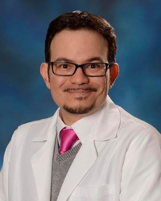
Eduardo Davila, PhD
Program Co-Director
Eduardo Davila, PhD, is a Professor and the Amy Davis Endowed Chair of Basic Immunology in the Department of Medicine and serves as the Associate Director of the Office of Cancer Research Training and Education at the CU Cancer Center. Davila’s research focuses on developing cancer immunotherapies. This research integrates a broad array of disciplines from protein biochemistry and cell biology to preclinical and clinical studies.
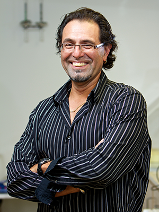
Carlos Catalano, PharmD, PhD
Program Co-Director
Carlos Catalano, PharmD, PhD, is a Professor of Biochemistry and Biophysics in the Department of Pharmaceutical Sciences, of Skaggs School of Pharmacy. His research focuses on understanding how a virus "puts itself together" in a cell and the adaptation of virus shells as "designer nanoparticle" platforms for therapeutic and diagnostic applications.

Adela Cota-Gomez, PhD
Assistant Director for Education Administration
University of Colorado Cancer Center
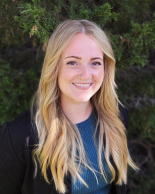
Molly Naylor, MA-TESL
Program Coordinator
University of Colorado Cancer Center
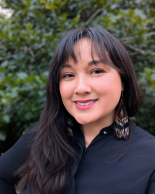
Kristine Sikora, PhD
Program Coordinator
University of Colorado Cancer Center
Contact Us
Questions? Please email: [email protected]
University of Colorado Anschutz Medical Campus
Fitzsimons Building
13001 East 17th Place
Campus Box F434
Aurora, CO 80045
Cancer Center
CU Anschutz
Fitzsimons Building
13001 East 17th Place
Aurora, CO 80045
720-848-0300
About Us
Cancer Resources
Affiliates
CMS Login